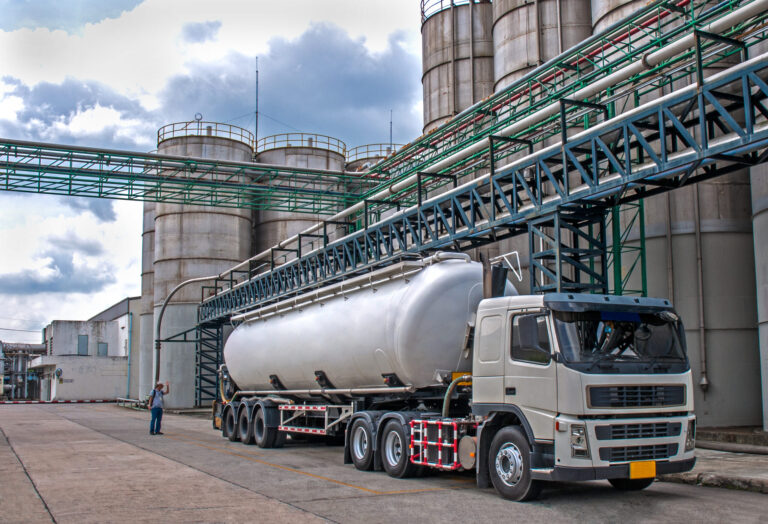Tips for Finding the Best Diesel Fuel Supplier for Your Business
Selecting a reputable diesel fuel supplier is a critical decision for any business relying on diesel for its operations. The significance of using high-quality fuel cannot be overstated—it powers your equipment, affects your bottom line, and impacts the environment. In this article, we will go over several key aspects to consider when choosing a diesel fuel supplier, ensuring that you select a partner that can provide both the product and service level your business deserves. Keep reading to uncover the best practices for engaging with a diesel fuel provider who understands and aligns with your business’s core operations.
Evaluating the Reliability and Track Record of Diesel Fuel Suppliers

When it comes to choosing a diesel fuel supplier, reliability is non-negotiable. A supplier’s history and reputation in the market can give you valuable insights into their dependability and the level of service you can anticipate. Investigating their track record includes examining past customer experiences, delivery history, response to emergency supply demands, and general business conduct.
Long-standing businesses like the diesel fuel supplier in Killarney are often a testament to consistent reliability and service. These suppliers have navigated various industry cycles and tend to have robust infrastructure and processes in place to meet their commitments. However, new entrants with innovative business models and customer-centric approaches should not be discounted either, as they can often provide competitive and agile services.
Referrals from other businesses in similar sectors can also guide you toward a reliable supplier. Peer experiences can offer a practical perspective on what to expect from a supplier in day-to-day operations and highlight potential red flags. Additionally, examining any awards, recognitions, or certifications the supplier may have received can be indicative of their industry standing and reliability.
Navigating Pricing Structures and Contracts for Diesel Fuel Purchases
Conducting negotiations with potential diesel suppliers involves a thorough understanding of pricing structures and how they may impact your financial planning. Transparent pricing is critical, and a reliable diesel fuel supplier should be able to furnish details on pricing components, including commodity costs, transportation charges, and any additional fees. Engaging in conversations about bulk purchase discounts and long-term contract incentives may lead to more favorable terms for your business.
When reviewing contracts, pay attention to the fine print related to price adjustments and escalation clauses. Understanding how external factors such as changes in fuel taxation, global crude oil prices, and regional regulatory changes might affect your costs will help in forecasting budget requirements and in selecting a supplier with the most stable pricing.
It’s also prudent to consider the flexibility of contracts offered by suppliers. Fixed contracts can provide price stability, whereas spot contracts might allow you to take advantage of market lows. Some suppliers may offer hybrid contracts that merge elements of both, thus offering a degree of safeguarding against market volatility while retaining some flexibility.
Assessing Delivery Options and Timeliness in Choosing a Diesel Fuel Supplier

Efficient and timely delivery services are integral to keeping your operations uninterrupted. Assessing a supplier’s logistics capabilities, fleet condition, and geographic coverage can offer insights into their ability to meet your fuel demands. Understanding their average delivery times and how they manage peak load periods could be the difference between constant supply and operation-stopping shortages.
For long-term partnerships, it’s beneficial to evaluate the supplier’s willingness to tailor their delivery schedules to your specific needs. Flexibility and the ability to adapt to changing circumstances indicate a customer-focused approach and can help minimize disruptions in your supply chain.
Checking Certifications and Environmental Compliance of Diesel Fuel Providers

Certifications and compliance with environmental standards reflect a supplier’s commitment to quality and regulatory adherence. It’s critical to engage with suppliers who demonstrate this commitment, as it indicates their fuel meets established quality benchmarks and that their operations don’t pose undue risks to the environment. This is not only crucial for regulatory alignment but also for the integrity of your equipment and the environment.
Seek out diesel fuel suppliers that hold relevant certifications and can provide evidence of regular audits and assessments. These can include ISO certifications, which are internationally recognized standards that ensure products and services are safe, reliable, and of good quality. Additionally, certifications from industry-specific organizations can signal specialized expertise and adherence to best practices within the sector.
Overall, choosing the right diesel fuel supplier is a multi-faceted decision with far-reaching implications for your business. A thorough assessment of fuel quality, supplier reliability, contract fairness, delivery efficacy, and environmental compliance will position your company for continual success. Navigating these key areas judiciously will not only safeguard your operational efficiency but also contribute to building a sustainable future for your business.

